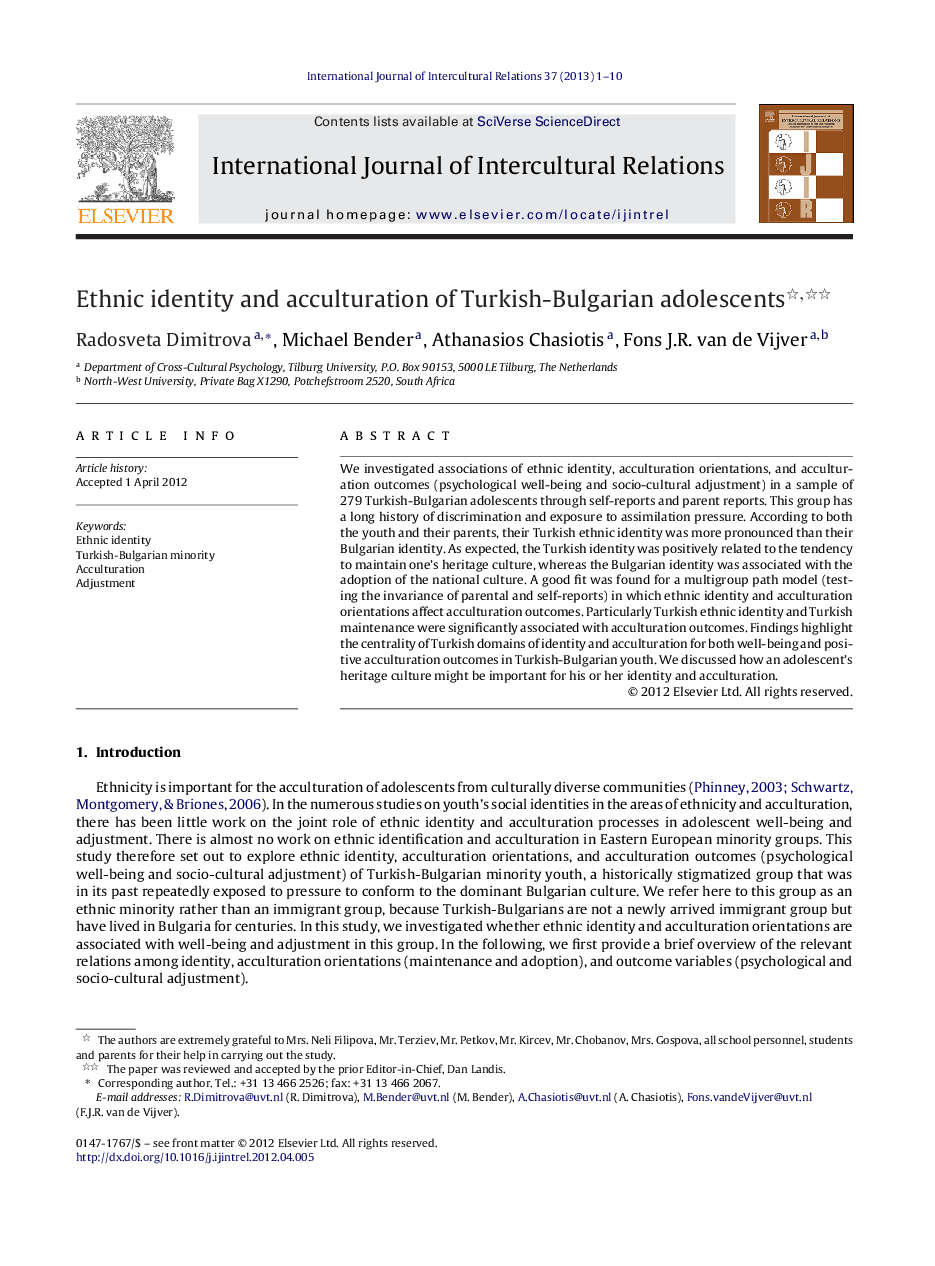| Article ID | Journal | Published Year | Pages | File Type |
|---|---|---|---|---|
| 947194 | International Journal of Intercultural Relations | 2013 | 10 Pages |
We investigated associations of ethnic identity, acculturation orientations, and acculturation outcomes (psychological well-being and socio-cultural adjustment) in a sample of 279 Turkish-Bulgarian adolescents through self-reports and parent reports. This group has a long history of discrimination and exposure to assimilation pressure. According to both the youth and their parents, their Turkish ethnic identity was more pronounced than their Bulgarian identity. As expected, the Turkish identity was positively related to the tendency to maintain one's heritage culture, whereas the Bulgarian identity was associated with the adoption of the national culture. A good fit was found for a multigroup path model (testing the invariance of parental and self-reports) in which ethnic identity and acculturation orientations affect acculturation outcomes. Particularly Turkish ethnic identity and Turkish maintenance were significantly associated with acculturation outcomes. Findings highlight the centrality of Turkish domains of identity and acculturation for both well-being and positive acculturation outcomes in Turkish-Bulgarian youth. We discussed how an adolescent's heritage culture might be important for his or her identity and acculturation.
► Turkish identity positively related to well-being of Turkish-Bulgarians. ► Turkish identity and Turkish culture positively related to well-being and adjustment of Turkish-Bulgarians. ► Importance of heritage identity and acculturation orientations well-being in stigmatized bicultural group.
